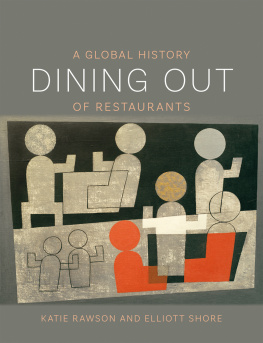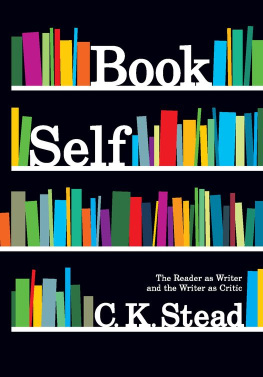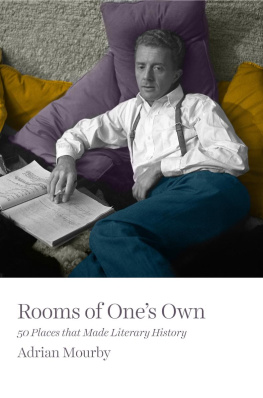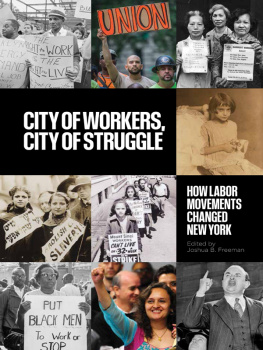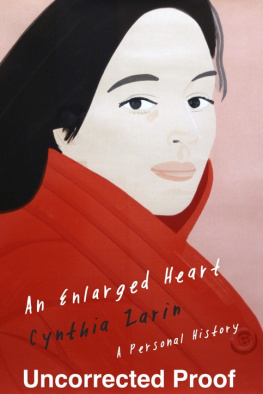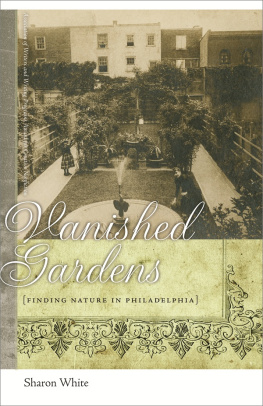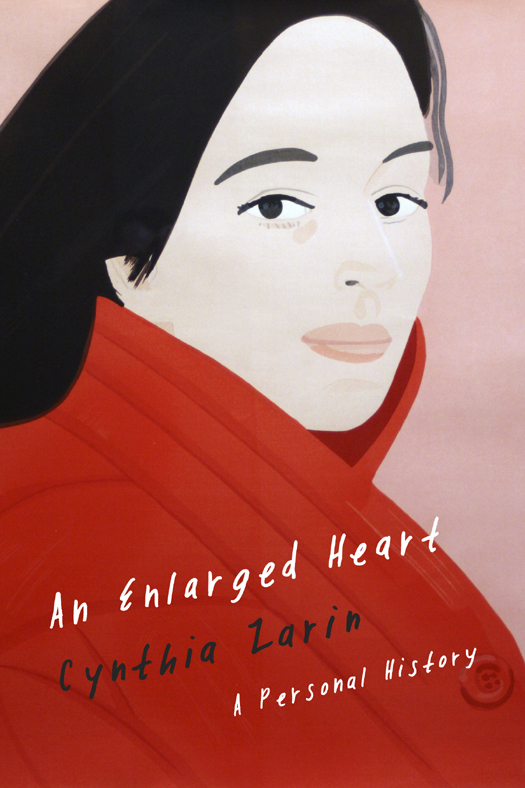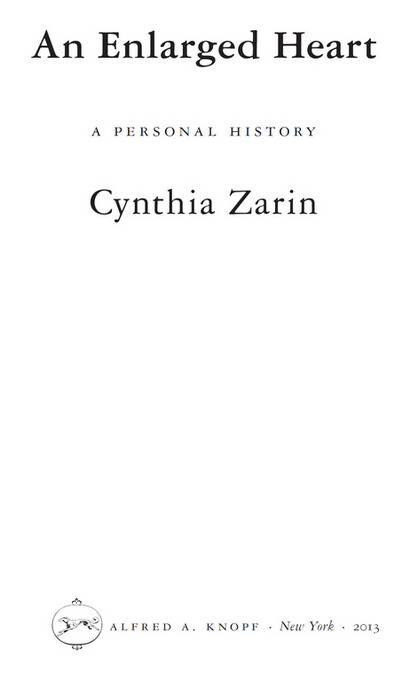ALSO BY CYNTHIA ZARIN
The Ada Poems
The Watercourse
Fire Lyric
The Swordfish Tooth
FOR CHILDREN
Albert, the Dog Who Liked to Ride in Taxis
Saints Among the Animals
Wallace Hoskins, the Boy Who Grew Down
What Do You See When You Shut Your Eyes?
Rose and Sebastian
This Is a Borzoi Book Published by Alfred A. Knopf
Copyright 2013 Cynthia Zarin
All rights reserved. Published in the United States by Alfred A. Knopf, a division of Random
House, Inc., New York, and in Canada by Random House of Canada, Limited, Toronto.
www.aaknopf.com
Knopf, Borzoi Books, and the colophon are registered trademarks of Random House, Inc.
A number of the chapters contained in this book were previously published, in somewhat different form, in the following publications: Two Pictures in Document; Restaurants (originally titled When Its Time to Go Out to Dinner) in Gourmet and Granta online; Mr. Ferri and the Furrier in Little Star Mobile; September (originally titled Evensong) in The New York Times; Curious Yellow, Curtains, and Sperlonga (originally titled Earrings) in The New York Times Magazine; portions of Sperlonga (as Big Cheese) also appeared in The New Yorker; An Enlarged Heart in The New Yorker and in The Best American Essays, 2004 edited by Louis Menand (New York: Houghton Mifflin Harcourt, 2004); and Real Estate in Subtropics.
Grateful acknowledgment is made to the following for permission to reprint previously published material:
Farrar, Straus and Giroux, LLC: Excerpt from Questions of Travel from Poems by Elizabeth Bishop. Copyright 2011 by The Alice H. Methfessel Trust. Publishers note and compilation copyright 2011 by Farrar, Straus and Giroux, LLC. Reprinted by permission of Farrar, Straus and Giroux, LLC.
This is a work of recollection. Some episodes and sequences of events may have been altered, and some names have been changed.
Library of Congress Cataloging-in-Publication Data
Zarin, Cynthia.
An enlarged heart : a personal history / by Cynthia Zarin. 1st ed.
p. cm.
This is a Borzoi book.
eISBN: 978-0-307-96219-5
1. Zarin, Cynthia. 2. Women poets, AmericanBiography. 3. Poets, AmericanNew York (State)New YorkBiography. I. Title.
PS 3576. A 69 Z 46 2013
811.54dc23
[B] 2012036687
Jacket image: Brisk Day 1, 1990 by Alex Katz Alex Katz /
Licensed by VAGA, New York, NY
Jacket design by Linda Huang
v3.1
For Eve
and
for Bill
Continent, city, country, society:
the choice is never wide and never free.
And here, or there No. Should we have stayed at home,
wherever that may be?
ELIZABETH BISHOP ,
Questions of Travel
Contents
Real Estate
I n the apartment where we used to live, the front door opened to a long hall. At the end of that hall was a window, a fire escape, and beyond that the view opened up like a painted fan. In the middle distance was the green copper roof and steeple of a huge church. Beyond it lay the low flat rooftops of Harlem, the elevated train, and a narrow bright wire of river. I never learned the name of that church, although every day I admired it. I thought it looked like a church in Prague. When once I said that to my old friend, who has been to Pragueshe, unlike me, has been everywhere, while I, who live three blocks from where I was born, am the most provincial person in the worldshe told me I was ridiculous, it looked nothing like churches in Prague, it looked as little like a church in Prague as it was possible to look. Nevertheless, I continued to think that in my mind, like a child who has been told that the words she is singing to a song are wrong, but continues to sing them.
Not everyone had kind words for this view. After we moved out, the woman who bought that apartment came to see me. It was a winter evening, and she had on a violet wool coat that I immediately coveted. At that time the cost of heating was astronomical, and we kept the house to which we had moved so cold that the tiny stars of snowflakes on her coat stayed frozen. She told me that a month after moving into the apartment she had discovered that her husband was having an affair with a younger woman. Now less than a year later, they were divorced. When I first met this woman, whom I will call Joan, I felt I already knew her, because she so reminded me of the mother of a boy I had once loved. She had her long, wide, flat bones and straight brown hair that fell in a comma over her forehead. Both of them were from the South, and decisive. After I had left school, and my friend and I had parted, his mother came once to visit me in the small grimy city where I was bored and unhappy. She was on her way back to India, where for half the year she sat at low wooden tables in houses that flooded during the rainy season and taught women to read. The other half of the year she lived in an apartment in New York near Carl Schurz Park. At that time her life greatly appealed to me, and I imagined that someday I too would do good work, crouching in mud, and bestowing beneficence. I had no idea that I was entirely unsuited to selflessness. As a way out of my boredom and unhappiness and the slight fear I felt every time I walked out the door in this city (once on the way home from a store a car had followed me), I was learning to cook. I had picked up a paperback in a used-book store. It was Elizabeth Davids French Provincial Cooking. Standing in the bookstore, Id read, in the section on sweets, the words, Everyone knows the recipe for chocolate mousse. I did not, but I wanted to. I wanted to be a person who knew things, and I believed then that there was a programmatic way to do this. I was in this city, accompanied by a boyfriend with whom my exchanges had become increasingly rancorous, because I had been given a fellowship to spend a year writing poems, but month after month, I couldnt think of a single poem. Out the back windows of the apartment I could see the blank windows of closed-down redbrick factories, and the huge hands of the electric company clock. The hands of the clock were lit day and night, and folded and unfolded like a giants pocketknife. I had counted the recipes in the book; if I made one recipe a day, the year would be over. By then, I was sure, I would know what to do next.
The day my friends mother arrived, I was making onion soup. It was the kind of recipe I liked then, because it took hours. She took the onion out of my hand. I was cutting it the wrong way. She put a second onion on the chopping board and showed me how to make tiny crosshatched squares without splitting the root. See, she said, now you know how to cut an onion. The gray sky of the city out the back window of the kitchen was punctuated with white church steeples. Each set of bells was timed differently, so that the five minutes before and after each hour were cacophony. My friends mother was upset by this. She was drinking whiskey and she put down her glass. The disorganization struck her as unconscionable. Years later I had a friend whose mother threatened to blow up her house if she didnt get a clock that worked, and I thought of those bells.
We had sold the apartment to Joan sight unseen. An acquaintance at the childrens school was a friend of Joan and her husband. They wanted to move. They lived in Battery Park City, and it was too close to Ground Zero. Joan was having recurring dreams.


